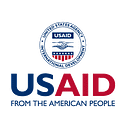Answering the Call
Helping Field 5,000 COVID-19 Questions a Day in Laos
The COVID-19 pandemic has changed the way we live, work, and celebrate, and Laos is no exception. In March 2020, the government of Laos announced a nationwide lockdown, canceling Lao New Year, or Pi Mai, the country’s most important social and religious event. At a time when they expected to be calling relatives to plan celebrations, many people wound up calling the National Hotline instead.
Laos’ Department of Communicable Disease Control (DCDC) originally created the National Hotline to respond to the SARS and Avian Flu outbreaks. Before COVID-19, 12 part-time volunteers answered occasional calls on eight phones. But as calls surged to the thousands after the lockdown, the hotline was overwhelmed.
At the request of the Laos Ministry of Health, the LHSS Project mobilized 66 volunteer medical students to help as part of the project’s support to the country. Soon, the hotline was operating 24 hours a day, with 30 counselors per shift staffing 30 phones. At the peak of the Pai Mai holiday, the hotline fielded 5,000 calls a day.
Working with the DCDC, LHSS developed job aids and standard procedures, and trained operators to listen to callers’ COVID-19 concerns and communicate key facts. Operators screened each caller for COVID-19 symptoms, counseled them on avoiding transmission, and explained how to self-isolate.
“This hotline is very important because there are a lot of people who do not have access to social media and other sources of information, especially those in rural areas,” said Khamphian Maithaphom, a 22-year-old medical student volunteer.
LHSS also helped the DCDC install an interactive voice response system to speed up response times (e.g., “press 1 if you are concerned you have COVID”). The system enabled operators to spend less time managing hang-up calls and wrong numbers, and more time speaking to callers.
When it became clear that hotline operators lacked the language skills to serve all of Laos’ ethnic groups, LHSS worked with the WHO and DCDC to create a simple call-back system to connect the callers with an operator who spoke their language.
“I received about four to five phone calls from Hmong callers, and am very proud to help answer calls in the Hmong language,” said hotline volunteer Chuevang Fongvan.
The spike in hotline calls has subsided, as has Laos’ COVID-19 incidence, and the hotline is back to 12 part-time staff. But if demand rises again — whether due to COVID-19 or a future health threat — the hotline will continue to benefit from the tools and training developed with support from the LHSS Project.
About the LHSS Project
The Local Health System Sustainability Project is the United States Agency for International Development’s (USAID’s) flagship initiative in integrated health systems strengthening. Its goal is to help low- and middle-income countries transition to sustainable, self-financed health systems as a means to support access to universal health coverage. The LHSS Project is led by Abt Associates.
